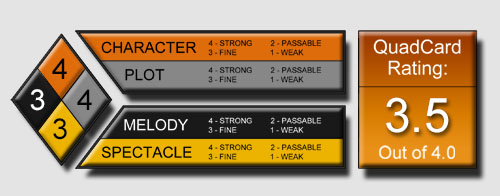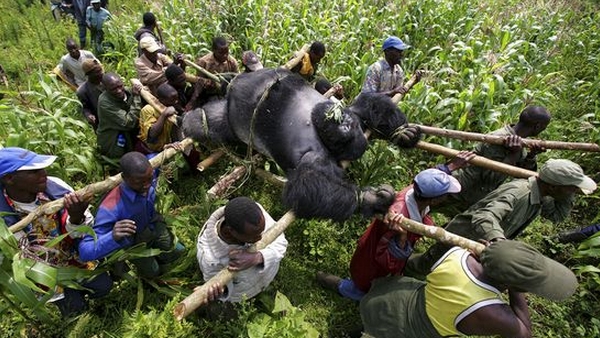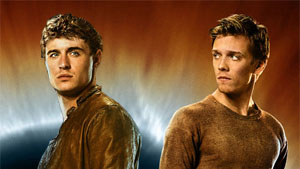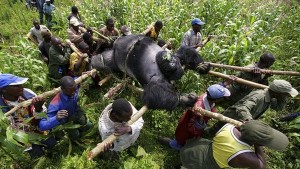 To start this off, and put things in context, it’s probably best to steal a line from Edward Zwick’s Blood Diamond, “Throughout the history of Africa, whenever a substance of value it is found, the locals die in great number and in misery”. What makes the story of Virunga National Park so disheartening, and yet engaging, is that the events are so current that most of it happened in real time. And things don’t get better once the credits roll. The park is, and has been, in a state of constant conflict.
To start this off, and put things in context, it’s probably best to steal a line from Edward Zwick’s Blood Diamond, “Throughout the history of Africa, whenever a substance of value it is found, the locals die in great number and in misery”. What makes the story of Virunga National Park so disheartening, and yet engaging, is that the events are so current that most of it happened in real time. And things don’t get better once the credits roll. The park is, and has been, in a state of constant conflict.
Virunga is home to some of the few hundred remaining mountain gorillas left in the world. They are the last of their kind and four young ones have been rescued by the park rangers. Only this ain’t Yosemite, and these gorilla babies are in a very complicated spot. Atrocities and malevolent acts are something we must contend with. 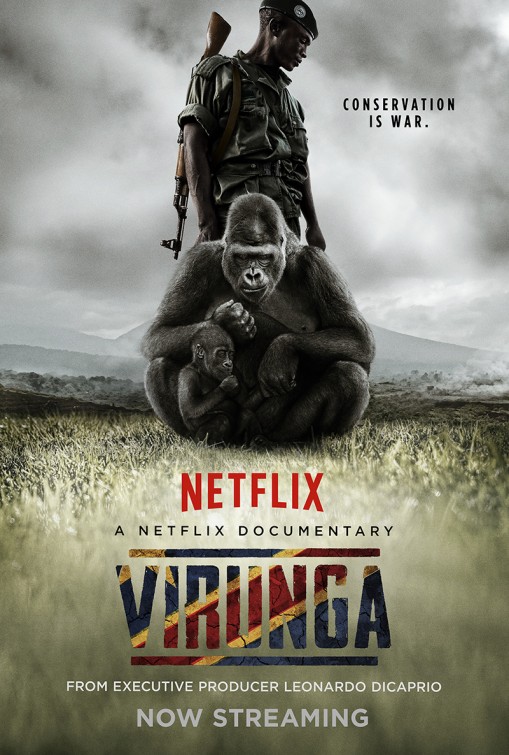 Where there’s good, there’s also bad – that’s life. But there are varying degrees of each which people encounter every single day. This documentary is a perfect storm of events around good people standing up against bad guys.
Where there’s good, there’s also bad – that’s life. But there are varying degrees of each which people encounter every single day. This documentary is a perfect storm of events around good people standing up against bad guys.
It’s not just poachers and a rebel faction (attempting to drive out the current government troops), going after local Congolese wildlife, or attempting to take the land. Greed and privatization, all in the name of expanding commerce, are descending on the park. Not for black market pelts and ivory trinkets, but the newly discovered oil reserve under the park’s lake. In fact, it is such a volatile situation, in such an important part of the Congo, that over 130 Rangers to have died protecting the park (see why that line from Blood Diamond is relevant?). The lake is means of income to the local fisherman but the oil under it is, obviously, far more valuable. No matter what the seemingly good willed oil company claims they can give back to the community, the exploitation of the resources will leave much of the surrounding area barren in the wake of the extraction process.
The story of Virunga and its three main threats converge on the park like plot threads in a Tony Scott styled thriller. There’s the two-faced oil company, the poachers (who remain largely unseen), and the shift in the government, an outing really, caused by the rebels. There’s also a large bit of bribery going around that finds these three parties somewhat overlapping and even cooperating. If it doesn’t make you sick, it’s actually quite thrilling.
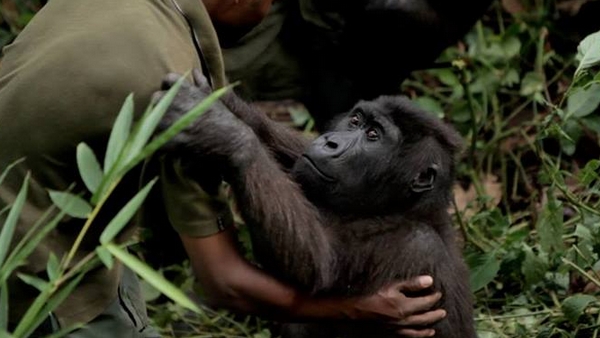
Watching a documentary about other parts of the world facing continuous strife can leave you with a little more than a slight feeling of utter hopelessness. Essentially, what you are watching is quite terrible and it is, unfortunately, a course that neither the viewer, the director, or people behind the production can change. The only thing a documentary like this can do, save for “please donate” tag line that accompanies or follows the film, is just promote the awareness of the situation.
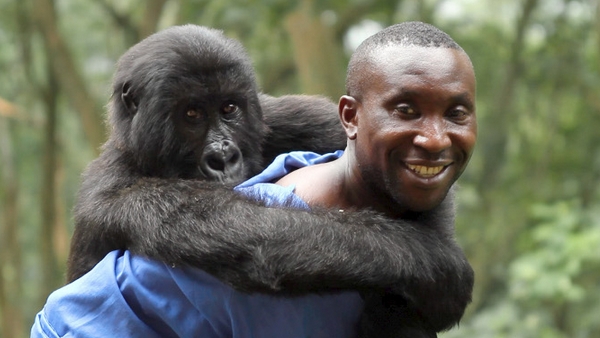
Virunga gives in-depth and nearly dangerous levels of exposition, adds layer after layer of tension, and while there’s no finality to the events documented (or any clear and easy path to resolution), it’s still a thriller of sorts that has a temporary happy ending (make sure to stay past the end credits). From the same filmmakers behind The Cove, the harrowing account of the animal atrocities in a small Japanese fishing village (check out our archival review here), the efforts in Virunga result in an equally moving, powerful and pulse-pounding account of real life events that happened in real time. As intended, Virunga is a call to action, just like the team’s whistle-blowing that was done in Japan in 2009.
G-S-T RULING:
It is important to note that Virunga screened just days after filming commenced and the backlash (on those in front of and behind the camera) was almost instantaneous. It was, like The Cove, an important enough issue to show the world, but also highlight the dangers that those park Rangers face. They are taking a stand and are giving their lives to protect the land. They stand for both creatures and ideals that have no voice or support. Shouldn’t we at least do something?
